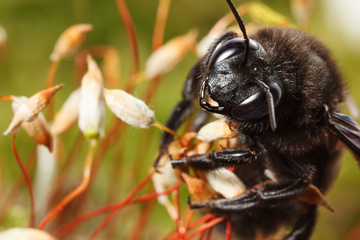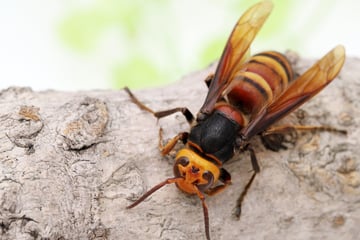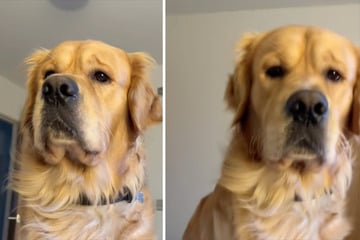What is the most poisonous octopus in the world?
What species of octopus takes home the record for being the most venomous in the world? Here's why this strange, adorable, and beautiful creature is so remarkably dangerous!

There's something weird about a creature that seems almost designed to make us want to touch it, but will kill us if we do.
When it comes to the most poisonous octopus in the world, we're talking about an amazing feat of natural engineering.
So why is this creature so deadly and so poisonous, and what's behind its ethereal beauty?
TAG24 takes a look at the amazing holder of the world record for the most poisonous octopus in the world and what makes it tick!
What is the world's most poisonous octopus?
The most poisonous octopus in the world is the majestic blue ringed octopus. Dotted with rings of blue, teal, and turquoise, these creatures are so unbelievably pretty that they present a very real risk to children and animals that want to touch their seemingly inviting bodies.
While it might seem like a shock at first that such a creature is so unbelievably deadly to the touch, it actually makes a lot of evolutionary sense – many poisonous animals take on a bright color to warn potential predators of danger.
A single blue ringed octopus has enough venom held within its tiny body to kill around ten people, putting it up there with the box jellyfish and Irukandji as one of the most poisonous sea animals in the world. It's an extraordinarily dangerous creature that can often be found in rock pools and reefs along Australia's coasts, and will kill in seconds.
Here are some basic pieces of information to help you get-to-know the blue ringed octopus!
- Scientific name: Hapalochlaena
- Classification: Octopus
- Habitat: Commonly found off the coast of Australia and countries in Southeast Asia, in rock pools and reefs close to the shore, at a depth of around 160 feet
- Appearance: brownish-yellow with bright blue rings that become luminous and pulsate when threatened
- Food: Shrimp, lobster, crab, mussels, and different kinds of sea snail
- Reproduction: Only once during their life cycle – males die once they have delivered their sperm to a female, who lays eggs and guards them until they hatch, after which she also dies
Considering that even the lightest sting from a blue ringed octopus could kill you within a very short space of time, it's best to steer clear and be very careful when in areas where you're likely to see them.
There is currently no remedy, antivenom, or antidote to a blue ringed octopus sting. If it gets you, then that's extremely bad news.
Will you die from a blue ringed octopus bite? While they are some of the most poisonous creatures in the world, and there is no antidote, very few people die from the blue ringed octopus. This is because with modern medicine there are many ways to keep a victim alive when they have been stung. The most important thing is to apply CPR as the blue ringed octopus' venom attacks the respiratory system.
Why is the blue ringed octopus so poisonous?

The blue ringed octopus uses its venom to paralyze its victims, rendering them immobile and defenseless so that they can be eaten. This is the primary purpose of the venom, allowing the octopus to actively hunt and consume its prey despite not having a particularly large or strong body.
On top of that, their venom is a source of protection and is often used in defense. Blue ringed octopuses are known to be quite aggressive when threatened, and will launch themselves towards you and try to bite you if they feel like you're attacking them. This behavior will be pre-empted by their blue rings glowing and pulsating as a warning.
Depending on how much venom is injected, the symptoms of the blue ringed octopus' venom will be felt within two hours of being bitten. Some will start to feel it after only a matter of minutes, others won't even notice that something is wrong until they're out of the water.
Paralysis symptoms occur in the diaphragm and the chest, making it very difficult to breath and causing significant pain. In most cases consciousness will be lost well before death. Make sure that if you or a friend are stung the ambulance is immediately called, and the victim gets put on ventilation to keep their lungs working.
They are very rare creatures, though, and are not usually going to present much of a risk to humans. Make sure you and everyone you're swimming with know about the risk, though, and keep your eyes out.

Is octopus ink poisonous?
Octopus ink is not poisonous and will have no serious negative impacts upon your body if consumed. Even in venomous octopuses, the ink sack is a separate gland from those that produce venom, and are not connected in any way. While this is not always the case, for the vast majority of octopus you don't need to worry yourself about their ink.
Even the smallest of octopus are deadly in Australia
It seems almost like a done-deal that when we write about the most dangerous, poisonous, or aggressive animals in the world one spot always comes up: Australia. The land of sweeping plains is so full of creatures looking for blood that even something as beautiful as the blue ringed octopus is deadly dangerous.
Many wonder how people survive Down Under, but let's be real, it's a pretty straight forward system! Don't know what something is? Don't touch it! Know that something's dangerous? Leave it alone. It's not rocket science!
Cover photo: 123RF/Eugenesim





